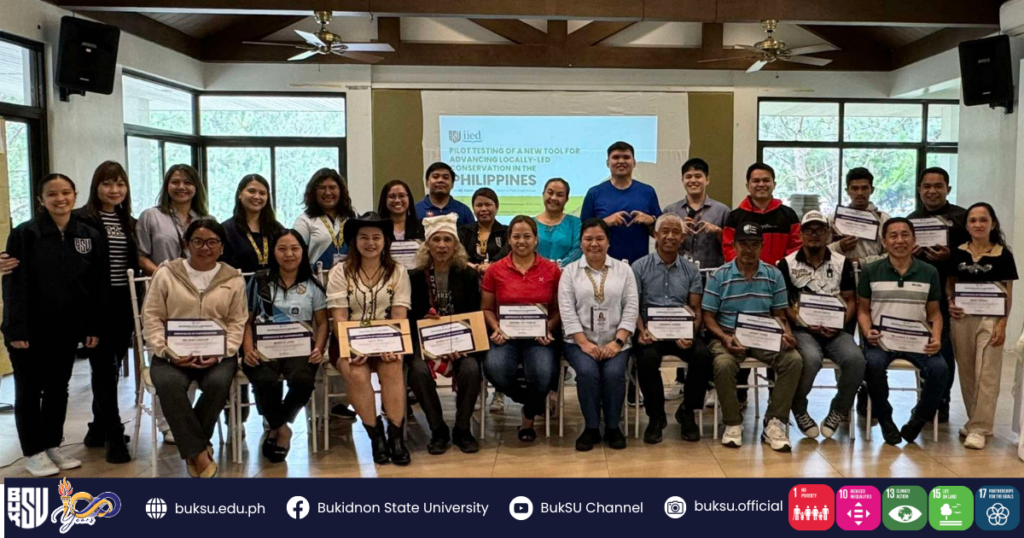
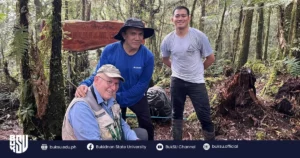



Bukidnon State University’s Institute of Environmental Governance (BukSU-IEG) remains committed to sustainable conservation by introducing a new tool to empower indigenous peoples and local communities in protected areas, this time for Mt. Kalatungan Range Natural Park (MKaRNP).
The development of the tool was informed by discussions at a global workshop on Indigenous Peoples’ Led Conservation (IPLC) governance held in Cambridge, UK, in June 2023. By incorporating global best practices and local insights, the tool aims to provide a practical framework for advancing community-led conservation in the Philippines.
Five countries were selected for pilot testing including the Philippines, where the tool was first tested at Mt. Kitanglad Range Natural Park (MKRNP) last March and April.
The tool, aimed at assessing and shifting power dynamics in locally-led conservation, was again tested during Phase II of the Assessment by Actors and Pathways to Change Workshop held at Pinegrove Mountain Lodge, Dahilayan, Manolo Fortich, Bukidnon on November 11-13, 2024.
SMART BukSU President Dr. Joy M. Mirasol, project leader, highlighted the significance of the new tool in addressing power imbalances within conservation efforts.
“The tool focuses on five key dimensions of power balance: management, governance structure, rights and duties, financing, and knowledge, values. By examining these dimensions, the tool can help identify areas where power dynamics can be shifted to empower local communities and enhance their role in decision-making processes,” Mirasol said.
The workshop is participated by a diverse group of stakeholders in their involvement to conservation initiatives, including representatives from the Provincial and Municipal Environment and Natural Resources Offices, tourism offices, academic institutions, indigenous peoples’ groups, and local communities.
“The tool empowers marginalized groups, including indigenous peoples and local communities, to actively participate in decision-making by assessing and shifting power dynamics in locally-led conservation. This fosters a sense of ownership and responsibility, leading to more effective and equitable conservation outcomes,” Hermenio Guinto, Pangantucan Council of Elders member, shared. (Joanne Vivien B. Necosia, Head Presidential Management Staff/Faculty Member College of Arts and Sciences)

A new research project aimed at documenting bryophyte species in Mindanao began its initial fieldwork in Mt. Pigngalngalnan- Mt. Kalo-Kalo located within the Kalatungan Range,
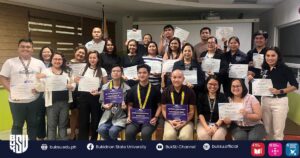
The Bukidnon State University Research and Development Unit conducted the “Research Champion’s Bootcamp: Research Mentorship and Innovation Series” in June 30- July 2, 2025, to
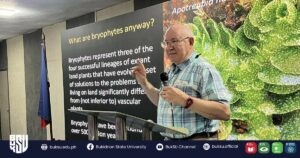
A visiting professor from the California Academy of Sciences shared his expertise with Bukidnon State University (BukSU) students during a lecture on July 2, 2025,
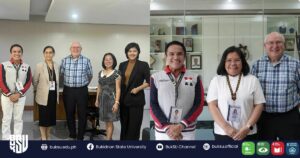
James R. Shevock, a botany research associate and fellow from the California Academy of Sciences, has returned to Bukidnon State University (BukSU) to resume his